Reasonable priority for Special Education
Senior Educationist advices:
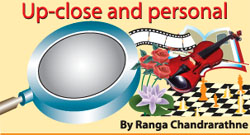
|
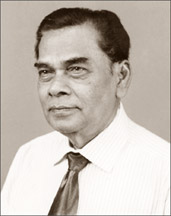
K.Piyasena
|
It was a saga of an itinerant teacher in the Department of Education
who through determination, honesty and self-less sacrifices, rose to
become an internationally renowned expert in Special Education.
His phenomenal career commenced as an itinerant teacher who for the
first time in Sri Lanka, experimented with teaching blind children with
their normal peers in the same class room. As it had become a model,
Piyasena was invited to form a Unit for Special Education.
Since then he did not turn back on his journey illuminating the lives
of thousands of children with special educational needs. In recognition
of his contribution in the spheres of Special Education in Sri Lanka, he
was awarded a Commonwealth Education Fellowship in 1971 and spent two
fruitful years in U.K.
At the time, Special Education was something alien to Sri Lankan
field of Education. Although there were special schools, the concept of
Special Education, Integration was not known until 1970.
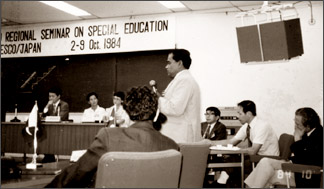
Mr.Piyasena(Chairperson) addressing the Asia Pacific Special
Education seminar held in Japan in 1984 |
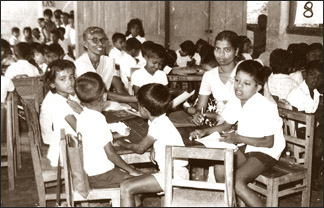
Children with ‘special needs’ intergrated into a regular classroom
atmosphere |
However, by 1970, the officials in the Department of Education
realised the need for Special Education in Sri Lanka after the
successful programme of Inclusive Education where students with Special
needs such as blind, crippled and retarded students were given placement
in regular schools and in the same class with ordinary students.
Upon success of the programme, it was applied throughout the island.
The programme was highly successful as within first ten years, the
programme has produced number of A/L qualified students with special
needs and few years later, 10 totally blind students were able to enter
the university.
By now, special methodologies and concepts have been developed to
educate the Students with Special needs. One such method is integration
where blind, crippled, partially hearing students were given placement
in regular schools.
Sometimes if the students were not in a position to sit with their
normal peers, they were educated in special units and as and when they
improved their skills, the students were given placement in regular
classes.
Another is mainstreaming where students with Special Needs were given
direct placement in normal classes and an ordinary teacher teaches
students together with a Special Teacher to educate children with
Special needs.
Deriving experience from Sri Lankan experience, UNESCO developed a
methodology known as Inclusive Education where normal class teachers
cater to the needs of the handicapped students sitting in the normal
class.
Piyasena is of the view that all the systems of Education, namely,
Integration, Special Schools, mainstreaming and Inclusion should be
continued to cater to the needs of the special students.
Special Students have been in existence for a long period of time and
where the Special Students were segregated from other students. In
regular schools, there are three systems; integrated units where
handicapped children were given education in a separate unit on a
temporary basis and Special Teachers take up the classes.
After improving their skills, the students were allowed to move into
regular classes and the regular class teacher as well as Special Teacher
used to help the students.
Under the mainstreaming, handicapped students who are not severely
disabled were given placement in regular classes along with their normal
peer with regular class teacher teaching them from time to time, A
Special Teacher intervened to help the special students. Under
inclusion, children with special needs were taught in regular classes by
regular class teacher who also helps children with special needs.
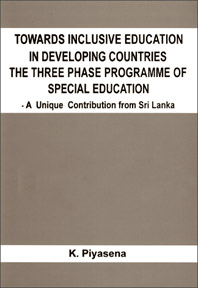 |
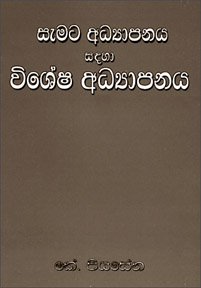 |
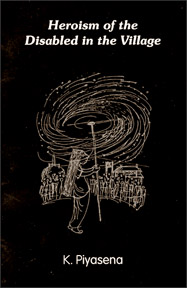 |
| Some
of the books authored by Mr.Piyasena |
It has been estimated that about 20-25 % of children are with special
needs and these children will suffer as a result of lack of
understanding of their needs. Even the gifted children are treated as
Children with special needs. Special Education is required for
developing talents and capabilities of gifted children. The
educationists developed Special Education for gifted children in many
other countries.
As an international expert on Special Education, Piyasena is of the
view that all children with special needs should be included in the
system of education and provide them with Special Education. By now,
over hundred handicapped undergraduates are studying in the university
system.
According to Piyasena, the officials in the Ministry of Education are
trying to change the past systems without proper evaluation and
re-introduce Inclusive Education in an ad hoc manner without a vision.
He laments over the short-sighted decision on the part of officials in
the Department of Education as the officials are trying to change the
system without a vision.
At the initial stages, the principle obstacle was that the parents of
the normal children opposed the idea of teaching children with Special
needs in regular classes. For instance, a class commenced at Royal
College for slow learners had to be closed down due to stiff opposition
from the parents of normal children. Principals in certain schools in
rural area opposed Especial Education.
Another obstacle was from the groups of persons in Special School
with vested interests. As those people were getting foreign assistance,
they opposed the idea of educating children with Special needs along
with normal students in regular schools.
In recognising the merits of the programme, foreign funding agencies
such as SIDA and JAICA funded. On retirement, Piyasena was appointed as
a Consultant on Special Education and served in that capacity for some
time keeping the momentum in the programme. However, at present, Special
Education is neglected and given step motherly treatment.
Children with Special Education are talented in some areas. For
instance, the blind have very sharp senses except vision and are
talented in many ways; deaf children are also intelligent although they
have problems in acquiring language skills and concept development.
As the Sri Lankan example was impressive, some of the officers at the
Special Education Unit were given placement in other countries such as
in Vietnam and students were sent from the West to study Special
Education Programme in Sri Lanka.
Piyasena is of the view that educationists who engaged in developing
Special Education should be guided by a clear vision as about 25 % of
student intake are children with special needs. No education policy or
methodologies will not be fruitful if that segment of students are
neglected.
One of the issues is the absence of proper system to identify
children with special needs and marginal cases where the children have
some impairment such as slow learners, children with slow growth.
Most of the drop outs are those children with special needs.
Therefore Special Education programme should be improved with qualified
officials as administrators. In some instances, authorities are not
prepared to listen to people with experience resulting in deteriorating
the quality of education.
***
K. Piyasena- Profile
* Commenced career as an itinerant teacher
* Head of Unit for Special Education in 1970
* Entrusted with developing programmes for all categories of children
with Special Needs
* Won a Commonwealth Education Fellowship in 1971 and studied Special
Education in UK for two years.
* Commenced teacher training programmes at Maharagama Teacher College
for blind, deaf and retarded children.
* UNESCO developed the concept of Inclusive Education based on
Integration and Mainstreaming approaches tested in Sri Lanka
* In 1984 Piyasena was appointed as Consultant in Special Education for
Vietnam
* Serving as an Executive Committee member of the International Council
for Education of the Visually Impaired (ICEVI).
* Won ICEVI International Leadership Award for Special Education
* The Board of Governors of the American Biographical Institute selected
him as 'Outstanding Professional Award' and received the prestigious
'Man of the Year 2007'.
* Mr. Piyasena's name and biographical details in the International
Directory of Experts and Expertise
[email protected] |
